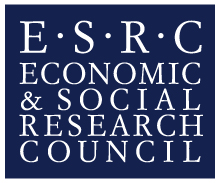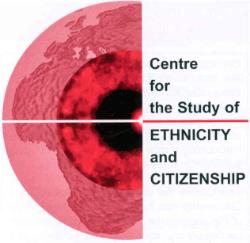Immigration enforcement and Article 8 rights: Mixed-immigration status families

Political pledges to reduce immigration are splitting up families. A series of recent changes to policy and legislation seek to reduce arrivals and increase removals and deportations, particularly of irregular (‘illegal’) migrants and foreign national offenders (FNOs). There are gendered dimensions to the effects, including men consistently making up over 85% of the foreign nationals detained and expelled from the UK.
About the research
Under Article 8 of the European Convention on Human Rights (ECHR), the right to respect for one’s private and family life, the public interest of someone’s removal/deportation is balanced against their personal circumstances. In response, however, to media accusations that Article 8 offers a legal loophole for undermining British border controls, recent legislation alters the scope and accessibility of Article 8 for foreign nationals and their families.
The research examines the intersection of family life and immigration enforcement for mixed-immigration status couples. Between 2014-17, researchers followed 30 families consisting of foreign national men with irregular or precarious immigration status, and their British or EEA-national partners and children. Whilst the partners and children are exempt from British immigration controls, the men’s temporary or expired visas, asylum claims, illegal entry or criminal records make them liable to immigration enforcement measures such as immigration detention and expulsion. Their immigration status also prohibits them from employment and presents many other everyday restrictions, proliferating under ‘hostile environment’ immigration policies.
Additional research data included interviews with practitioners from legal, private, state and NGO sectors; observation of deportation appeals and other immigration hearings; and analysis of changing media and political rhetoric.
Legal and policy context: Deportation and Article 8
Under UK law, foreign nationals who break immigration rules or have irregular immigration status are liable to administrative removal. Foreign nationals whose presence is deemed undesirable (e.g. for criminality) can be deported, whatever their immigration status. The public interest to expulsion is balanced against people’s personal circumstances.
The UK Borders Act 2007 shifted the balancing exercise and made the issuing of Deportation Orders automatic for FNOs sentenced to 12+ months imprisonment or for certain offences. Major changes to the Immigration Rules in 2012, strengthened by the Immigration Act 2014, restricted the interpretation of Article 8 in settlement and deportation cases, particularly for people with immigration or criminal offences. Compounding this, the Legal Aid, Sentencing and Punishment of Offenders Act 2012 removed most human rights and immigration cases from the scope of legal aid.
The UK government remains obliged to respect Article 8 rights, including those of FNOs, and has many commitments – international and domestic – to protect families and children.
Policy implications
Immigration policy
- Government should revert to pre-2012 interpretation of Article 8 protections.
- Decision-makers should be sensitive to implicit gender biases, including by recognising the importance of fathers irrespective of nationality, immigration status or offending.
- Decision-makers should acknowledge when reduced contact or support might be a result of immigration restrictions rather than weak family ties.
- The right to work, e.g. through discretionary leave, should be granted to undeportable FNOs, in recognition of the impact of unemployment on dependants and in line with recommendations from the Chief Inspector of Borders and Immigration.
Access to justice
- Barriers to legal advice and representation must be must be tackled, including by making legal aid available for human rights and immigration enforcement challenges.
Immigration detention
- Community-based alternatives to detention should be the norm.
- If detained, people should be held a maximum of 28 days and held as close as possible to their families.
- Decisions to detain should demonstrate meaningful assessment of potential damage to family units.
- Detention centre contractors should be required to support detainees to maintain relationships.
Research findings: Families and relationships:
Mixed impacts: UK-based family ties can help meet emotional, financial, practical and legal support needs, but may also be associated with guilt, separation or trauma. Immigration insecurity and enforcement harm the whole family, including British citizens.
Family formation and planning:
- Contrary to popular assumption, men with precarious or irregular immigration status often seek to avoid relationships or delay marriage and child-raising. Sensitive to widespread suspicion over their motives, male interviewees try to keep their private and immigration lives separate, even when it weakens their legal cases.
- British interviewees were much more likely to pursue marriage in an attempt to resolve their partners’ immigration status (albeit with limited success).
- The deprivations and instability of an irregular immigration status results in early and often extreme dependency on partners. This is likely to worsen under hostile environment policies.
‘Umbilical cord’: People feel that relationships, especially with children, involuntarily tie them to the UK.
Relationship dynamics and gender roles are coloured by immigration precariousness. Aspects of the immigration system such as detention and forced unemployment are felt to produce ‘role reversal’. Male interviewees feel emasculated by an inability to perform ‘provider’ and ‘protector’ roles and their partners are burdened with financial and emotional responsibilities.
“They can lock me up however long they want. They can’t break me away from my daughter. It’s impossible. No matter how big the law is, it’s impossible.”
Case study
Adam arrived as an unaccompanied asylum seeking minor a decade ago. He fell in love during the years waiting for an asylum decision. By the time he was refused refugee status, his girlfriend was pregnant and he was serving a second short prison sentence. On the day of release, his heavily pregnant partner was waiting for him outside the gates when he discovered that he was being transferred to immigration detention. The following week the baby was born, with Adam present ‘virtually’, by telephone.
The Secretary of State refused Adam’s Article 8-based challenge to deportation. She argues that as a repeat foreign offender, his deportation is in the public interest and won’t disproportionately interfere with his family life. Adam is presented as an absent father, with his detention undermining the strength of his fatherhood. Adam’s British girlfriend and baby are advised to follow him to Iran, the country of deportation.
Research findings: British and EEA national family members:
Collateral damage: The mental health, financial security, private life and social mobility of British/EEA citizens are harmed by their partners’ immigration insecurity. Those already marginalised are hit hardest.
Employment:
- Citizens work multiple jobs and long hours to compensate for their partners’ forced unemployment. The financial burden affects conception and breast-feeding decisions, e.g. sacrificing maternity leave.
- Immigration detention and expulsion disrupt care arrangements, producing single-parent households and increasing welfare reliance.
Children: Immigration-based separation from parents causes emotional, behavioural and educational harm and can diminish children’s sense of Britishness. Parents worry about the impacts on their children’s futures.
Dilemmas: Government routinely advises citizens to either relocate to countries of deportation or conduct their family life through telephone and Skype. The realities of both arrangements tend to be underplayed.
Civic disenfranchisement: Citizens’ feelings of membership are undermined by their partners’ insecurity or exclusion. Some mirror precarious migrants, living with packed suitcases, fearing immigration officers, carrying identification, etc.
Research findings - Law and policy:
Legal advice and representation (of good quality) are increasingly essential for navigating the immigration system but increasingly unobtainable. Legal aid cuts result in unrepresented appellants at deportation and human rights appeals, with significant costs to court time and judicial fairness.
Biases: Decision-makers often undervalue or mistrust as opportunistic the private and family lives of foreign men, particularly in immigration enforcement cases. Gender, racial and class biases are apparent.
Weakening family life: Many aspects of the immigration system hinder precarious and irregular migrants from performing spousal/parental roles, e.g. immigration detention, indefinite uncertainty and forced unemployment.
Legal consequences:
- Immigration-related weakening of family life is used in refusing Article 8 claims, thus facilitating people’s expulsion and reinforcing gendered and racialised stereotypes of failed foreign and ethnic minority fathers.
- Family obligations may be in direct tension with adherence to the Immigration Rules, thereby increasing the risk of criminalisation (e.g. working illegally to support one’s family).
“It feels like betrayal basically. How can my government do this to me?”
Case study
Anna fell in love and got engaged to someone who had entered the UK illegally. Her fiancé found cash-in-hand work to help them save for the ‘proper, romantic wedding’ she dreamed about. But he didn’t have permission to work and was arrested during a work place raid. He was prevented from calling her and Anna spent three frantic days before finding him in immigration detention awaiting removal to Afghanistan.
Anna spent over £800 in travel costs visiting him in detention. Her distress at his treatment was exacerbated when a disturbance broke out at the centre. They were on the phone talking when Anna heard officers enter his room, followed by screams and the line going dead. After a desperate week trying to locate him, she discovered him inexplicably in prison, covered in injuries. Her complaints that he appeared to have been beaten by officers were dismissed.
The relationship was not considered a barrier to his removal. Anna has sold her possessions and relinquished her housing to join him overseas.
Further information
Project webpage (including main report and other policy briefings): https://www.bristol.ac.uk/ethnicity/projects/deportability-and-the-family-mixed-immigration-status-families-in-the-uk/
BID (2013) Fractured Childhoods: the separation of families by immigration detention: www.biduk.org/
Children’s Commissioner et al. (2015) Family Friendly? The impact on children of the Family Migration Rules: A review of the financial requirements: www.childrenscommissioner.gov.uk/publication/family-friendly/
Independent Chief Inspector of Borders and Immigration (2017) An inspection of the Home Office’s management of non-detained Foreign National Offenders: https://www.gov.uk/government/uploads/system/uploads/attachment_data/file/656584/An_inspection_of_non-detained_FNOs.pdf
Policy Report 19: Jan 2018
Immigration enforcement and Article 8 rights: Mixed-immigration status families (PDF, 1,898kB)
Contact the researchers
Dr Melanie Griffiths University of Birmingham
Dr Candice Morgan-Glendinning University of Exeter
Authors
Dr Melanie Griffiths and Candice Morgan, University of Bristol

